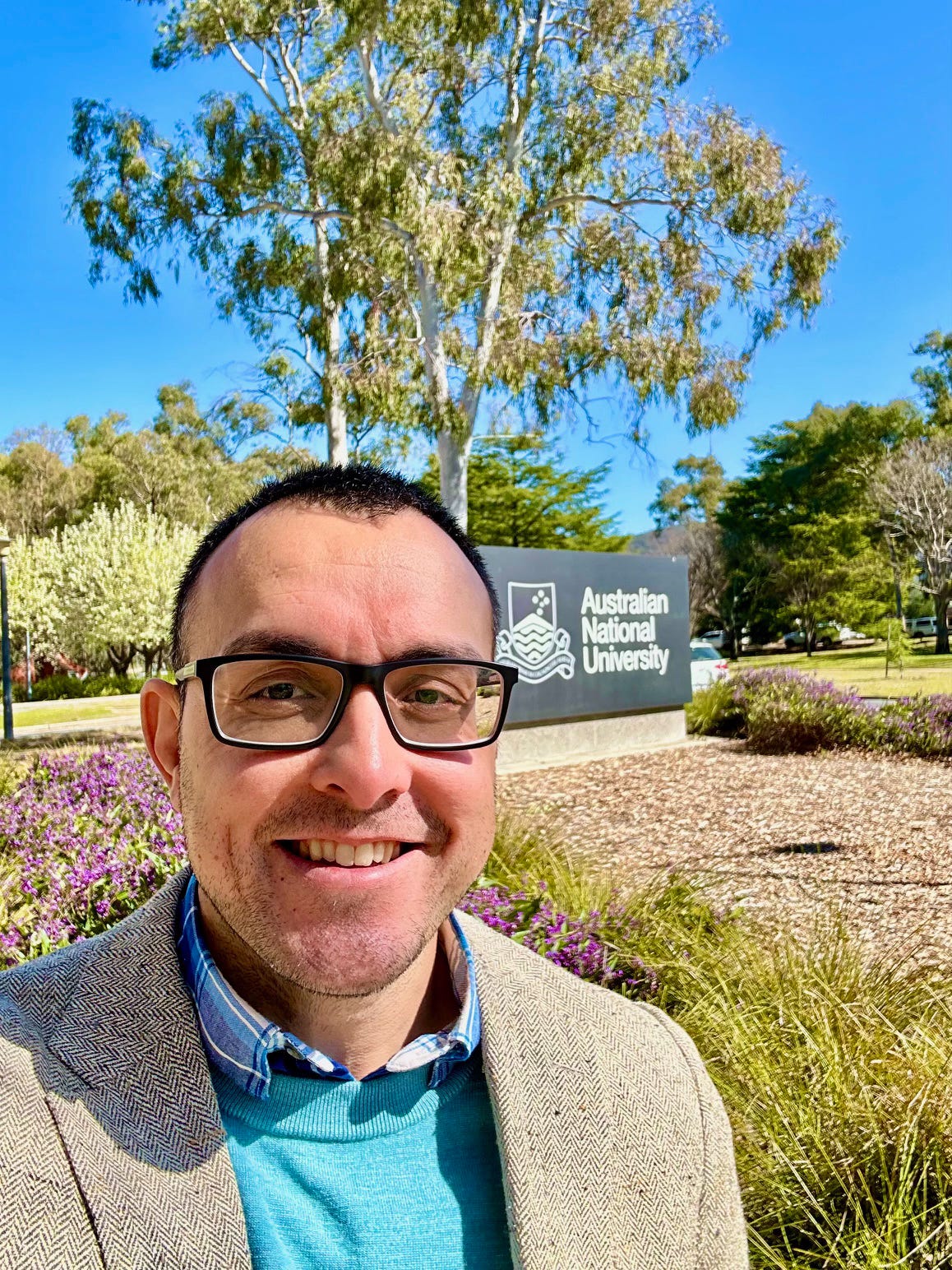Albanese: “We had a cracker today getting the Pacific Policing Initiative through; it’s so important…”
Campbell: “That’s fantastic…I talked with Kevin [Rudd, Australia’s Ambassador to the US] about it and we were going to do something and he asked us not to, so we did not. We’ve given you the lane, so take the lane.”
Albanese: “we can go halfsies on the cost if you like. 🤣🤣🤣”
This short video clip is making the rounds on social media. In it, Australia’s prime minister, Anthony Albanese, is chopping it up with US Deputy Secretary of State Kurt Campbell. They appear to not realize they were being filmed (one hopes).
Both were in attendance at the Pacific Islands Forum (PIF) meeting—the premier regional institution in the Pacific—held this year in Tonga. In the video, the two were celebrating what they saw as a big policy win. Going into the PIF, Australia had been working to get the buy-in from Pacific Island nations for a Pacific Policing Initiative (PPI) that would be funded and hosted by Australia, with a training facility also based in Australia.
Ahead of the PIF meeting, it wasn’t obvious that they would get regional agreement for this PPI thing because a number of Pacific countries had voiced some form of reservation about it.
The director-general of the Melanesian Spearhead Group—of which Fiji, Papua New Guinea, Solomon Islands, Vanuatu, and the Kanak and Socialist National Liberation Front of New Caledonia are all members—said of the initiative:
this PPI must be genuinely framed to fit our purposes and not conveniently developed as part of the geo-strategic denial security doctrine of our big partners.
The prime minister of Vanuatu, Charlot Salwai, similarly added:
to make sure that this PPI is framed to fit our purposes and not developed to suit the geo-strategic interests and geo-strategic denial security postures of our big partners.
“Geo-strategic denial” is how a lot of folks in this region understand the US strategy of primacy—US domination as a means of denying Chinese domination. And they chafe at it because of what it assumes as much as what it imposes and risks.
But it’s been an open secret in the Pacific for the past year that some countries were uncomfortable with Australia’s gambit for not only the obvious reason that it appears imperious, but also the even more obvious reason that it’s trying to create a police security architecture for the Pacific that excludes and is meant to squeeze out China. Over the past year or two, several Australian officials have commented that they see China’s police presence in the Pacific as a threat and believe China should have no “security” role in the Pacific. For Pacific Island nations, that’s not Australia’s call to make.
Cut to the viral video, which shows what Australia’s sub-imperial relationship to the US looks like from the inside. Backslapping blokes. Western powers hatching plans for what to do in the Pacific (rather than with the Pacific). The client driving things when it has the comparative advantage. And a presumption on the part of the US that Australia is a loyal proxy for Washington’s interest in what increasingly looks like a regime of exclusion. Kurt literally says:
we were going to do something and [the Australian ambassador] asked us not to, so we did not. We’ve given you the lane, so take the lane.
I have a sense that some people think it’s a cheap shot to describe Australia as a sub-imperial power or to make note of the fact that Australia’s entire foreign policy nests within US foreign policy. But it’s not a cheap shot; it’s what the relationship is. There’s an excellent book-length argument about why Australian policymakers think their security depends on American primacy. It doesn’t have to be a relationship where Washington gives the orders and Canberra obeys; hegemony doesn’t work like that.
More importantly, exchanges like that between Albanese and Kurt would be inexplicable if Australia wasn’t “America’s man in the Pacific.”
From a Canberra perspective (where I’m writing this literally right now), Australia has been well-served by its sub-imperial arrangement with the US in the past. But the past is past. The US no longer has primacy and exists in a world mismatched with such a strategy. Australian thinkers have not taken seriously how what they do serves the strategy of another power whose own strategy clashes with the world as it is.
To paraphrase Macklemore, the problem isn’t the police, it’s what they’re policing. Police capacity is an issue in the Pacific and a regional approach could be useful. But that regional approach must be led by the Pacific, not a sub-imperial power that has openly declared its desire to displace China and stand-in for a superpower that is the region’s leading source of militarization.1 Policing is fundamentally a community function or an imperial function. And it can’t be a community function if it’s imported from the outside.
Random shots from Canberra right now
It’s for another day, but I’m actually uncomfortable with all outside police forces in the Pacific, including Chinese police forces. It’s just that the scale of Chinese presence pales in comparison to that of the US and Australia.















